Does your lawn have clover? Do you just detest the sight of it? Believe me, I know how that feels. But while clover may not look so great in your all-green lawn, especially white clover, it has its benefits.
However, if you are looking for how to get rid of clover in your lawn, I have put this guide together to offer you a solution.
Natural Ways to Rid Your Lawn of Clover
The following are some of the best and proven natural ways I have used to rid my lawn of clover:
1. Uproot It
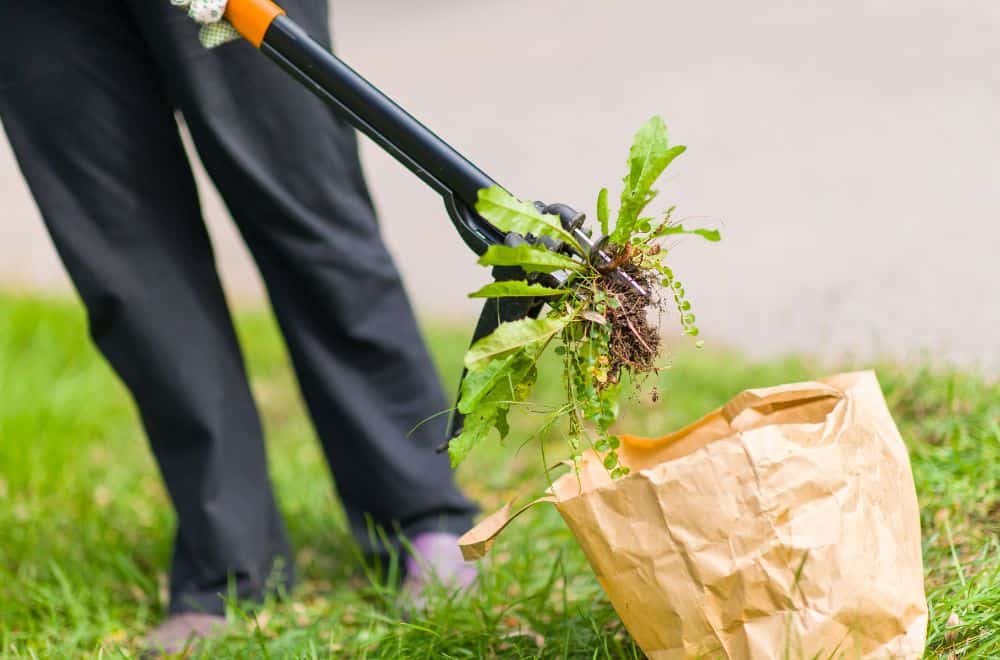
Now, it seems so simple, right? And yes, you may have already tried this. But are you sure you got all of it? Maybe that is why it keeps growing again.
Try uprooting the clover using your bare hands. Use this method if your lawn is small or the patch where the clover is growing is small. But this time, make sure you remove it from the roots. Leave nothing behind, not even a tiny stem.
But if the patch of lawn where you have the clover is large, use a small gardening spade. To do this right, you have to make the soil under the clover loose. Doing this guarantees that you get all the parts of the root.
When you remove it, go back to check the patch again. This is for you make doubly sure that you leave no part of the root behind. Otherwise, the clover will easily regrow.
2. Cover It
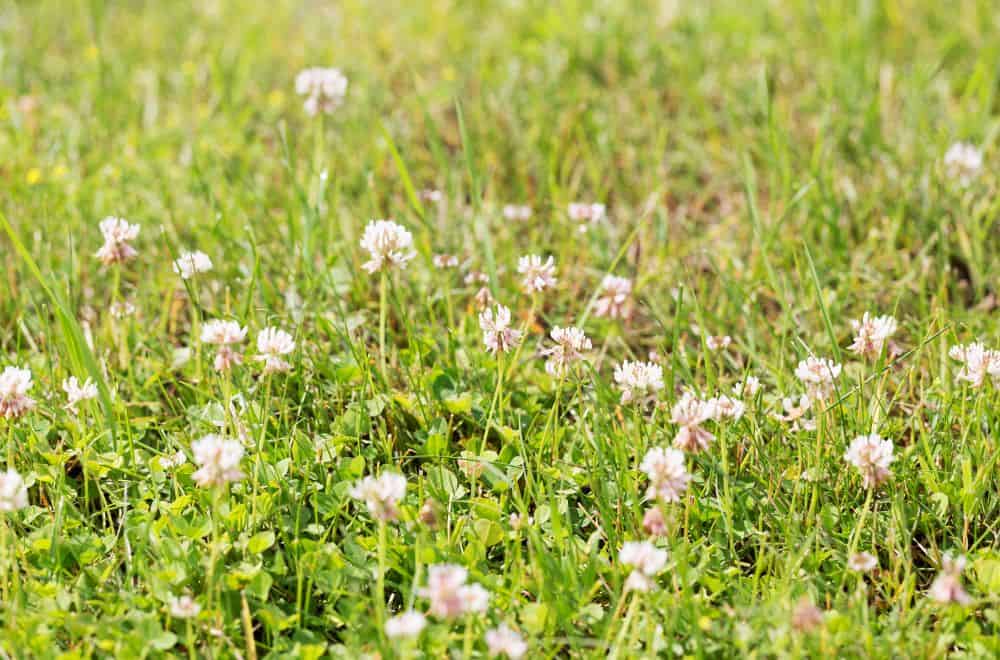
Plants need sunlight to grow and flourish, right? Clover is no different. While it gets many nutrients from the rich soil under your lawn, it still needs sunlight to thrive and spread.
So, to cut off part of its life source, take a sheet, plastic preferably, and cover the clover. Make sure to get all of it, leaving no part uncovered.
Secure the edges of the sheet with stones or rocks so that it does not lift easily and expose the clover to sunlight.
A plastic sheet is preferable because it totally blocks sun rays.
After some weeks, most or all of the clover in your lawn will die. However, so will other grass trapped under the sheet with the clover.
If it grows together with other wanted grass in your lawn, count it as collateral damage. If you successfully rid your lawn of the clover, the good grass can regrow in good time.
3. Use a Natural Weed Killer
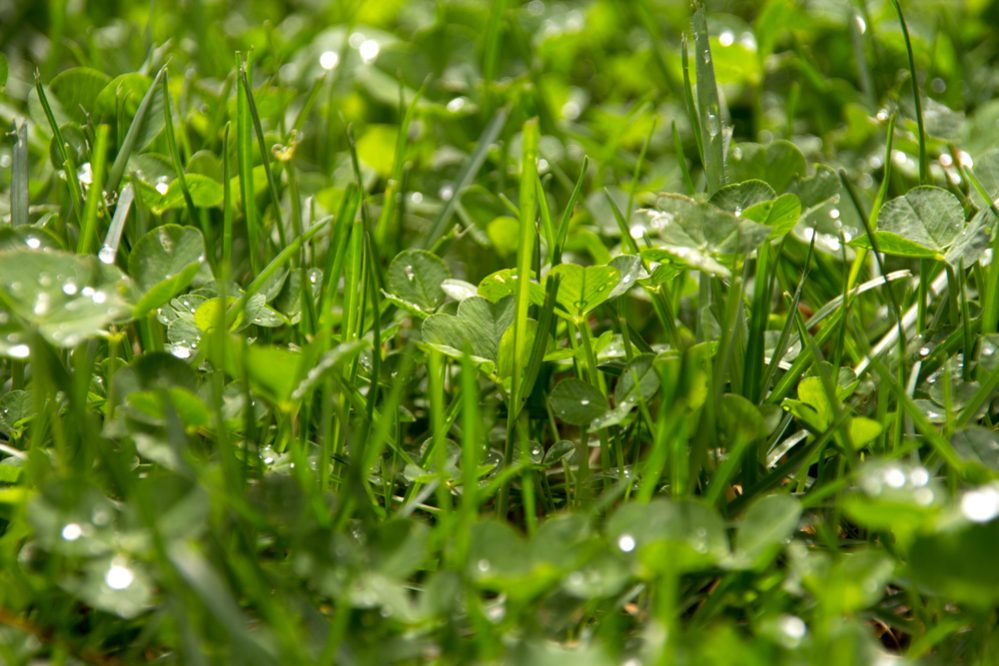
You can mix your own natural weed killer and apply it to the patch of lawn where you have clover.
The best type to use is the vinegar mixture. For you to get it right, mix 1 drop of dish soap and 1 cup of vinegar. Next, add 1 cup of water to it.
Shake the mixture thoroughly and pour it into a spray bottle. Now, you take it to the part of the lawn where the clover is growing. Spray it and make sure it gets all the clover.
The vinegar in the mixture will cause the leaves of the clover to dry out. And the soap will cause the vinegar stick to the leaves. The water is just to mix the other ingredients properly.
You may have to repeat the spraying process for several weeks before all the clover dries out. And there is also the chance the mixture will get to other grass.
But the good news is that you can control how it spreads. Simply target the clover and spray it directly. Ensure there is splashing on the other grass if you are particular about keeping it.
However, if you are going to go for commercial weed killers, try those which contain mecoprop-P and dicamba. If the specie of clover is particularly resistant to these ingredients, try a weed killer that contains fluroxypyr.
When to Apply Weed Killers
You should use these weed killers between April and August. If you use them after August, they won’t be as effective. This is probably because the clover and other weed have grown stronger.
And since clover found in lawns freely and easily self-seed, it is important that you continue to apply the weed killers from the next spring, when they will be effective.
You should also know that applying a weed killer 6 months or less after laying or sowing the grass is a no-no. The chemicals present in the weed killers are detrimental to the delicate grass and may destroy it.
However, there are claims that those that contain fluroxypyr are safe for use on lawns after only 2 months.
Most importantly, ensure you learn how to safely and properly apply these weed killers.
If you are new to this, this video will show you how to effectively spray a weed killer on your lawn…
4. Use Lawn Fertilizer
“Hey, wait! I’m trying to get rid of the clover, not encourage it!” Relax, I know.
The fertilizer is to make the normal lawn grass stronger than the clover. Doing this will make it easier to kill the clover without adversely affecting the lawn grass.
Start feeding your lawn grass at the beginning of spring, usually April. This is when new growth begins so the grass is more likely to receive the fertilizer, seeing as it would be in the young-growth stage.
Feed it through to August – September. You’d be amazed at how well the grass would do, even with all the weed.
5. Apply Organic Herbicide
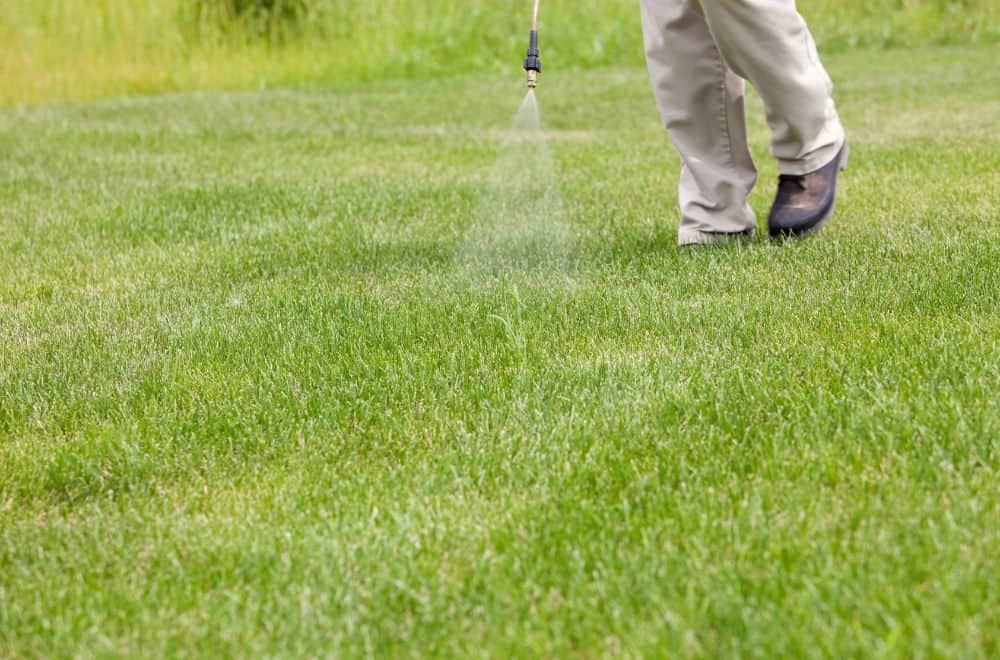
In the place of your homemade weed killer, you can employ an organic herbicide. There are many good ones you can choose from, starting with Ortho Weed B Gon and A.D.I.O.S. These ones will select the weed to kill without harming the lawn grass around it.
Factors that Cause Clover to Grow in Your Lawn
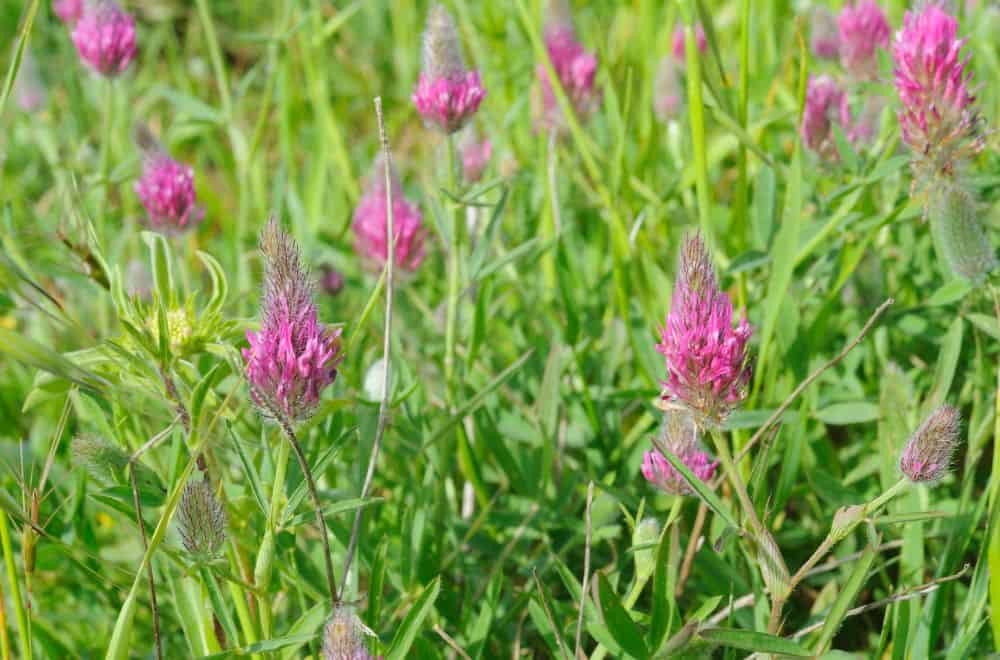
The following are possible causes of the growth of clover in your lawn:
Compaction of Soil
The grass in your lawn does not get all the nutrients it needs when there is soil compaction. This means the soil is tightly packed, making it difficult for nutrients to get to the plants.
Since weeds are superficial, they thrive just about anywhere. And if your lawn grass is not healthy enough to choke the weeds, they will compete for space.
The solution to this is to use a core or spike aerator on the soil. When broken up, the grass will do better and survive against the weed.
Low Nitrogen Level
If the soil under your lawn grass has little or no nitrogen, clover will have a field day there. Normal grass gets its needed nitrogen from the soil while clover can derive its own from the air. So, it does not need the soil’s supply.
One quick way to deplete the nitrogen in your soil is using too much quick-acting fertilizer. You may see quick results when you use such a fertilizer but you end up killing soil’s quality.
To improve the quality, start using organic fertilizer such as corn meal and manure. You may have to wait to see results but the grass will be better and the soil will be healthier.
Wrong pH in Soil
It is important you know the soil pH of your lawn. The right pH for the soil should between 6.0 and 7.0. Anything less or more will affect the growth and health of your lawn grass.
If the acidity of the soil is too high, you will find that the grass has a hard time growing while clover thrives.
Thankfully, though, there is a solution to this. Use lime or other soil amendments to balance the pH out.
How You Can Prevent the Growth of Clover in Your Lawn
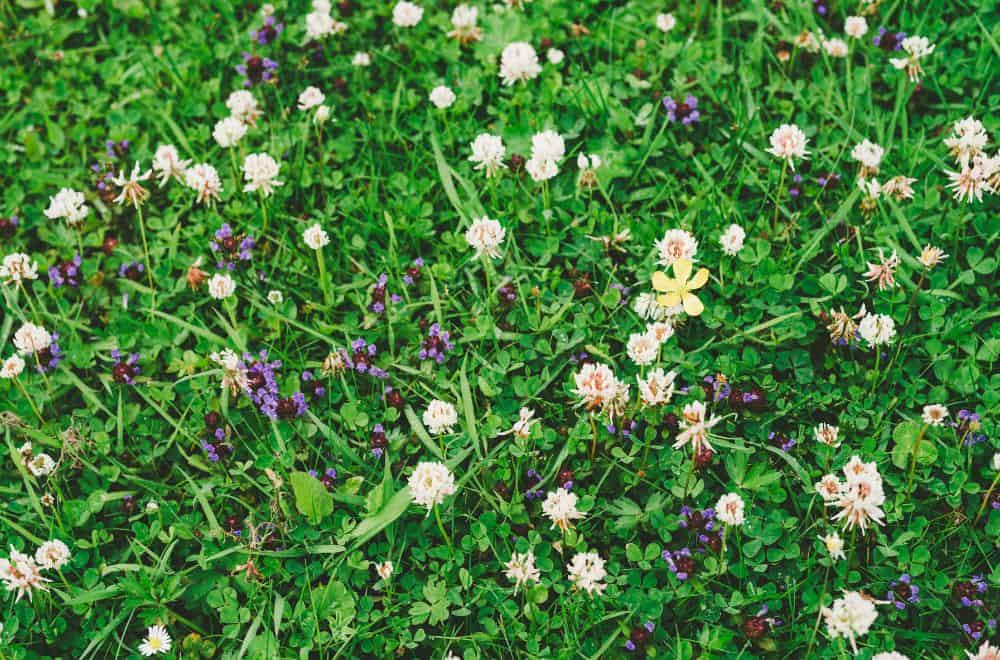
Prevent clover from growing in your lawn in the future by doing one or all of the following:
Don’t Mow the Grass too Low
You will find that clover does well in grass that isn’t so tall – usually shorter than 3 inches. However, your lawn grass finds this height stressful. So when the grass is too low, clover prospers while your grass struggles.
Therefore, make your grass taller than 3 inches. This way, it has a fighting chance against clover.
Try Corn Meal Gluten
This type of gluten contains organic peptides. When you use it in your lawn, it releases the peptides into the soil. This prevents the growth of new clover but, sadly, won’t affect clover that is already there as well as other grass.
I would like you to keep in mind that new clover growth is not all it prevents. If you reseeded the lawn recently, you may not want to use this.
Use Organic Fertilizer
While using quick-acting fertilizer leads to the quick growth of grass, using organic fertilizer is better. It may take longer for the grass to grow but you will get healthier grass and less clover. Organic fertilizer makes the soil uninhabitable to clover.
It is important to point out to you here that clover is not all bad if you have need for it. But you have to know its proper uses and create its own space so it can grow without destroying valuable grass.
Conclusion
Getting rid of clover in your lawn is not a herculean task if you follow the steps I have laid out in this guide.
And it is best to go the natural way; chemical products are not only harmful to you and the grass but also the environment.
To make it easy for you to follow, choose any of the following:
- Uproot the clover
- Cover the clover
- Use a weed killer
- Use an organic herbicide
- Use a lawn fertilizer
Feel free to ask me any question, if you have any, in the comment section.
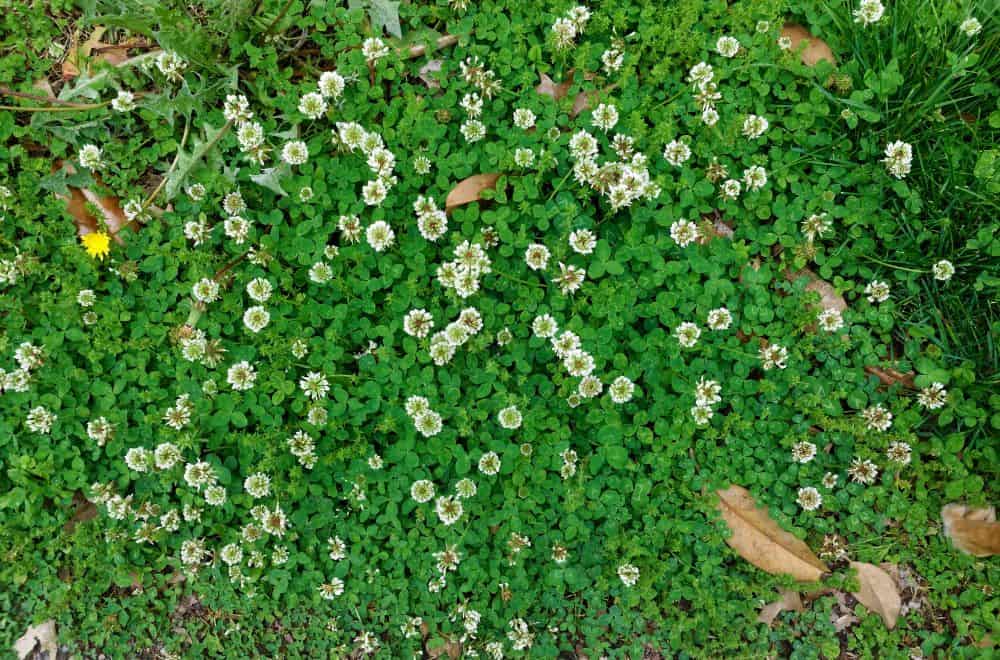
What’s wrong with the clover I like clover. I like red clover as well it is edible Jesus Christ you kill stuff you can’t eat you don’t kill stuff that you can eat in a pinch you better start thinking about it.